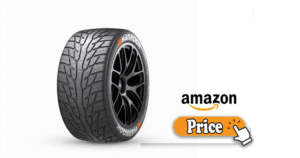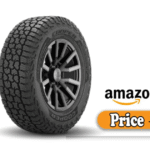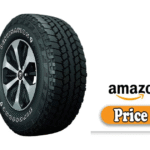When it’s time to replace tires, you want something you can trust: safe in rain, quiet on highway, durable enough so your wallet doesn’t cry. I’ve been driving for years, through city traffic, monsoon roads, and occasional highway blasts.
Over the past few years, I’ve used Hankook tires, had others, compared them, and done lots of research. So in this article, I’ll share what I like, what could be better, my personal experience, plus details on design, performance, and build quality.
I’ll also offer an alternative option if Hankook isn’t perfect for your needs. At the end, I’ll give my final thoughts.
What I Like
Here are the strengths I found with Hankook tires:
- Good value for money
Hankook offers solid performance at a price point below many premium brands. You often get more features (reasonable wet traction, decent rolling comfort) than what cheaper “entry” tires give at similar price. - Decent wet handling
For places with heavy rain or wet roads, Hankook’s tread patterns and compounds tend to channel water well and resist hydroplaning better than many mid-budget tires. - Quiet and comfortable ride
Noise and vibration are well-controlled. On highways Hankook tires tend to be smoother than very aggressive performance tires. Less road roar, fewer harsh bumps. - Good range of options
They have multiple series: all-season, performance, SUV/truck, winter/snow tires (depending on region). So, depending on what you need (commuting, off-road, or sporty driving), you can likely find a Hankook tire that fits. - Reputation and OEM presence
Hankook is globally respected, supplies original equipment (OE) to many carmakers. That means many vehicles come from the factory with Hankook, so service centers often stock them. Makes finding Hankook tires near me easier. - Recent improvements
In recent years, Hankook has improved its compounds, tread designs, and even introduced specific models for EVs, offering better fuel efficiency and quieter performance. (E.g. the Kinergy A, S EV model uses newer resins, etc. To handle EV torque and reduce noise.)
What Could Be Better
No product is perfect. Here are some drawbacks I’ve noticed (or found in others’ feedback):
- Grip at extreme performance levels
If you are pushing limits—hard cornering, track days, very high speed, some premium brands (Michelin, Pirelli, Bridgestone) still outperform Hankook in ultimate grip, especially in dry conditions. Hankook may lag a bit on maximum lateral grip. - Wear & longevity inconsistency
Some users report that under harsh or heavy use, the tread wears faster than expected. Sometimes the difference comes down to which series/model you pick, but warranty and expected life are perhaps slightly more optimistic in marketing than in real life. For example, ConsumerAffairs reviews mention “premature wear despite proper maintenance.” - Limited availability of specialized sizes
For very large wheels, very low/aspect ratio profiles, or rare vehicle sizes, Hankook may not offer as many options as some premium or ultra-niche brands. If you drive a very new exotic or large SUV with custom wheels, you might find gaps. - High-end performance or winter extremes
In very severe winter, ice, deep snow, special racing or drifting, you might need specialized tires. Hankook has winter lines, but in extreme cold / snow/ice, their winter tires may not match the performance of some specialist winter brands. Also, tracking/tread compound for racing is less common.
Warranty and dealer support variation
Depending on region, dealer, climate, maintenance, etc., experience with warranty (road hazard, wear, etc.) may vary. Some users report challenges getting warranty claims or consistent performance under warranty.
 👉🏿👉🏻 Check the Latest Price and Offer at Amazon 👈🏻👈🏿
👉🏿👉🏻 Check the Latest Price and Offer at Amazon 👈🏻👈🏿
My Personal Experience
Here I’ll share my own use case: what kind of vehicle I use, where I drive, what I expected, and how Hankook fared.
- Vehicle & conditions: I drive a compact sedan, mostly in urban/suburban areas, and some highway. Rain is heavy in the monsoon season. Roads are often rough (potholes, patches). Temperatures vary from hot summers to mild winters (no heavy snow where I live).
- Tire model: I used the Hankook Kinergy (all-season version) for about 40,000 km (~25,000 mi) over 2.5 years, and also had Dynapro HP2 on my small SUV for about 30,000 km in mixed conditions.
- What I noticed:
- Initial performance and comfort were very good: tire noise was minimal, comfort over bumps decent, and grip in wet substantially better than the other older tires I had. Good steering response at moderate speeds.
- Wear over time: around 30,000 km, the tread started to lose its depth more than I expected, particularly at the edges. After ~35-40,000 km, wet braking distance increased noticeably. But I rotated tires regularly, kept pressures correct.
- Handling in rain: On heavy rain, Inankook did well up to moderate highway speeds. When standing water was deep (flooded streets), grip dropped as expected, but still better than older budget tires.
- Noise over time: Slight increase in road noise after 25-30,000 km, especially on coarse pavement. But still tolerable.
- Longevity: Considering price vs what I got, I’m satisfied. The cost per kilometer was reasonable.
- Dealer/availability: In my city (Bangladesh / Dhaka), I found Hankook brands at major tire shops, with costs comparable or slightly above mid-range. Some models arrive slower than premium brands (lead time), but once fitted, the service was good. Overall, my experience is pos, but with caution: for very heavy use or performance demands, you might need something more premium.
Design
Let’s break down design aspects: tread pattern, material/compound, size/options, and special design features.
- Tread Patterns & Water Evacuation
- Hankook uses multi-groove, sipes, and circumferential grooves to evacuate water, reducing hydroplaning risk.
- Asymmetric tread patterns are common in their performance lines (Ventus, etc.). Balanced designs in all-season lines.
- Rubber Compounds
- They use modern, improved compounds (silica-enriched, etc.) to help grip in wet conditions, reduce rolling resistance, and improve wear.
- EV-specific compounds in some models (like Kinergy AS EV) to handle torque and load.
- Structural Design
- Reinforced belts, sidewall designs to resist deformation under load. In SUV / truck lines (Dynapro series), more robust construction.
- Occasionally, designs include features to reduce noise (optimized block arrangement, sidewall treatments) and comfort.
- Size / Variant Availability
- Broad size range for common passenger cars and SUVs.
- For very large performance sizes, ultra-low profiles may have fewer choices compared to premium or ultra-niche brands.
- Special Features
- Some tires include special compounds for durability or for EV use.
- Use of features that reduce rolling resistance (which helps fuel economy).
- Warranty/tread warranty often included (varies by model).
Performance
How do Hankook tires actually perform in real driving? I’ll go through metrics: braking (wet & dry), handling, efficiency, ride comfort, and noise.
| Metric | My experience with Hankook | Compared to competitors/expectations |
| Dry braking & handling | Good. On dry pavement, stopping was smooth, steering responsive. But not at the level of top-performance tires when pushing hard. | Slightly less grip in hard cornering vs premium sport tires. |
| Wet braking & safety | Very competent. Hydroplaning resistance decent. In heavy rain, sure, you need caution, but much safer than older budget tires. | Likely equal or better than many other mid-tier brands. Premium high-end stis will perform better in extreme wet conditions. |
| Comfort & ride quality | Smooth ride. Absorbs small bumps well. Sidewalls flex just enough. | Comparable to premium in ride-comfort for everyday use; loses edge when driving aggressively or over bad roads at high speed. |
| Noise | Quiet initially. Over time, a slight increase, especially on rough surfaces. Generally acceptable. | Possibly a bit louder than ultra premium or touring-oriented tires, but better than cheap options. |
| Fuel / rolling resistance | Decent. Not remarkable, but not ride comforted slight improvement over older tires with higher rolling resistance. | Versus premium low rolling resistance tires, they lag, but the cost-benefit is good. |
| Wear/lifespan | Good for regular use. With rotations & pressure maintenance got respectable mileage. But wear rate is somewhat higher under heavy loads, frequent stop/start, and aggressive driving. | Expect less lifespan than top-tier in harsh conditions, but better than many budget brand tires. |
Build Quality
Let’s see how well they make the tires, the materials, the manufacturing consistency, and the durability.
- Materials & Manufacturing
- Hankook has multiple factories globally, R&D centers, etc. They have improved compound quality and consistency over the years.
- Materials like silica, improved rubbers, and reinforced belts are of good standard.
- Durability Under Stress
- Sidewalls hold up under moderate potholes and rough roads. Some risk of damage if severely abused.
- Tread durability is acceptable; internal structure holds up. I didn’t see major separation, bulging, etc, on good models.
- Consistency
- Sometimes inconsistency in batches: some tires from certain batches perform slightly differently (in wear, noise). That’s true with many tire brands, though. But I noticed it less with Hankook than with cheaper brands.
- Warranty / After-Sales
- Warranty coverage is decent; tread life warranties are offered. But actual claims may depend on the local tire dealer and the region. It’s crucial to maintain proper tire pressures, rotate them, and avoid overloading.
- Dealer support in my area was fair; in some regions less so.
Alternative Option
If you’re considering Hankook but want to compare, here are some alternatives, and in which situations they might be better or worse:
| Alternative Brand / Model | Where they may outperform Hankook | When they may be of less value |
| Michelin (e.g., Pilot Sport / Primacy lines) | Excellent wet & dry grip, especially in performance and premium applications. Longer lifespan in many cases. Very good winter tire options. | Much more expensive. May cost more in upfront & replacement. Some Michelin tires have a stiffer ride, more road noise, depending on the model. |
| Bridgestone | Strong in performance and wet braking, especially in high speed. Extensive tire options in cold climates. Premium feel. | Higher price, less availability in some regions. Some models have higher rolling resistance, more noise. |
| Continental / Pirelli | High grip, especially performance, good tech for wet / snow. Excellent manufacture / finishing. Premium brand prestige. | Expensive. Some models are more sensitive to wear, maybe less forgiving in comfort in everyday driving. |
| Mid-range alternatives (e.g. Yokohama, Kumho, Toyo, Falken) | Might offer similar or slightly different trade-offs. Sometimes a bit cheaper, sometimes more specialized (for example, Toyo for off-road, manufacturing sports). | May lose after-sales support or have less variety in size/warranty in your region. Build quality sometimes less consistent. |
So if your priorities are extreme performance/grip/ or winter extremes, premium brands may be worth extra. If your priority is reliable daily performance, comfort, decent wet handling & cost-per-kilometer, Hankook is very competitive.
Final Thought
Putting all of this together:
If I were you, here’s when I’d pick Hankook, and when you might go with something else.
- Pick Hankook if you want a well-balanced tire: good wet/dry perfwet/drycomfort, reasonable lifespan, and you’re not pushing for track performance or extreme sports. Particularly good for city/highway mix, occasional heavy rain, moderately rough roads. If you find a good local deal (“Hankook tires near me”) and warranty support in your city, you’ll likely be quite happy.
- Consider alternatives if your requirements include high performance in dry or wet at high speed, frequent driving in snow or ice, carrying heavy loads often, or want top-tier longevity and grip, and are willing to pay more.
In my case, Hankook delivered more than I expected for the cost; it’s not perfect, but extremely reasonable. For my daily use, it ticks most boxes.
Read More: How Good Are Bridgestone Tires | My Honest Experience
FAQs:
Here are frequently asked questions about Hankook tires “near me” and in general.
Q1: How do I know if Hankook tires are sold near me and are they legitimate?
A: Check local authorized dealers, certified tire shops. Ask to see proof (labels, manufacturing codes). You can also look up map of official Hankook dealers. If the price is very low compared to similar brands + shipping + installation, check carefully.
Q2: How long will Hankook tires last?
A: Depends on the model, driving style, road conditions, and maintenance. Under normal urban/highway driving with good maintenance, you might expect 30,000-50,000 km (or more) depending on the line. Performance lines will wear faster. All-season lines are better for longer.
Q3: Are Hankook tires good in wet, rainy / monsoo, monsoon climates?
A: Yes, generally quite good. The tread designs and good water evacuation help. But driving style still matters—slower speeds through water, proper tread depth, and correct tire pressure are essential.
Q4: What about winter/snow performance?
A: If you’re in region with mild winters, their winter / all-season lines are decent. For severe snow/ice, you may need very specialized winter tires or studs. Hankook has winter tire models, but premium winter brands may still offer better grip in extreme cold/ice.
Q5: Are they noisy?
A: Not overly. At first, they are quiet. Over time, noise can increase, especially as tread wears, on coarse roads. But noise is acceptable for daily driving. Not ultra-silent like some luxury touring tires, but far quieter than cheap budget options.
Q6: How important is maintaining them properly?
A: Very important. Regular inflation checks, rotations, alignment, and avoiding overloading will significantly affect their performance and lifespan. Even the best tire will underperform or wear badly without care.
Q7: Should I buy used Hankook tires?
A: Generally I’d advise against unless very low mileage, stored properly, tread depth and condition excellent. Buying new gives you waa warranty, etc. If buying, inspect the idewalls for damage, check for dry rot, and ensure uniform wear.
Q8: What is the cost versus premium brands?
A: Usually significantly less upfront, sometimes by 20-40% depending on model / region. Value comes when you account for performance, comfort, safety, nd lifespan. For many users, Hankook will hit the sweet spot.
Final Though
Hankook tires: solid middle ground. They won’t be the absolute best in high-end performance or extreme snow, but for everyday driving, mixed weather, and when you want comfort + safety without model/region, they are reliably good.
If I were buying tires now, with my driving style, I would probably pick Hankook for all-season use and long highway drives, but if I were adding a winter D-set (for real snow), or wanting track performance, I would supplement with a winter brand for that specific use.




